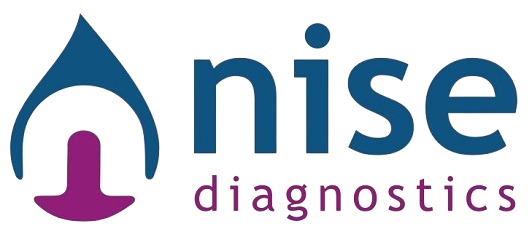Understanding how often you should schedule a preventive health checkup is essential for maintaining optimal health at different stages of life. As we age, our health needs change, necessitating different types of screenings and assessments. This guide offers a detailed breakdown to help you navigate these changes, ensuring you’re proactive in your health management. It’s not just about frequency but aligning checkups with your unique health profile.
Introduction
Preventive health screenings help identify health issues early on. For instance, conditions like high blood pressure often show no visible signs. Screening lets you tackle problems soon before they get worse. This approach not only increases lifespan but also boosts overall life quality.
Regular checkups result in better health and well-being over time. Spotting high cholesterol early can stop future heart conditions from forming. These screenings offer reassurance, creating a health baseline for tracking any future changes. Taking these steps ensures small problems stay minor and manageable, reducing future health costs.
The Significance of Preventive Health Checkups
The earlier a disease is detected, the more manageable it tends to be. Catching health issues early makes treatments less tough and costly. Cancer, diabetes, and heart diseases, if identified early, are easier to handle. This preventive approach helps save on long-term health expenses, for both you and society.
Having regular health checkups helps establish baselines that track changes over time. These checkups create a record of important health metrics like blood sugar and cholesterol. This is not only key for early detection but offers reassurance about your health. It also allows your doctor to tailor advice with detailed knowledge of your health history.
Routine Health Checkups in Your 20s and 30s
Monthly self-examinations are key for catching issues early on. Regular checks like breast or testicular exams can help spot things much earlier. A proactive approach is part of keeping your health in check down the line.
Seeing your doctor once a year for basic screenings is important. Annual assessments include checking blood pressure and tracking your BMI score. These visits help highlight early signs of problems to be addressed quickly. It’s a straightforward way to maintain a healthy lifestyle and make adjustments as needed.
Every few years, more comprehensive tests should be considered for overall health management. Checking cholesterol and blood sugar is crucial if family history suggests it. For women, HPV tests are essential for detecting issues that could become cervical cancer. Your doctor can guide when these tests fit into your routine. This use of preventive health checkup strategies is vital to take control of your healthcare.
Health Screening Essentials in Your 40s
In your 40s, add mammograms to your routine. These tests catch breast cancer early. Continue with past screenings and adjust based on health advice. Be attentive, as hormones and stress can disrupt your body more now.
Men, start discussing prostate health with your doctor soon. Prostate cancer rates increase the older you get. Early detection means easier and more effective treatment. Even without symptoms, check-ups often make a big difference.
Don’t underestimate the importance of skin exams in maintaining well-being. Skin cancers aren’t limited to older ages, so regular checks are key at 40. Use sunscreen and note changes in moles or spots. Early detection heavily relies on personal vigilance alongside professional checks during a preventive health checkup.
New Health Checkup Requirements in Your 50s and 60s
Screenings for colorectal and lung cancers become more essential as you age. For lung cancer, smoking history impacts when these checks should start. It’s crucial to talk to your doctor about these important tests.
Don’t skip on screenings from your younger years but adjust as needed. Doctors can guide how often you need these checkups based on your health story. Tweaking your schedule helps make health checkups more effective for prevention.
Bone health is critical now, with bone density exams advised, especially post-menopause. Osteoporosis weakens bones, risking breaks and injuries over time. Regular checkups catch changes early, aiding you in staying robust as you age.
Customizing Your Health Screenings in Your 70s and Beyond
In your 70s, it’s a great idea to rethink health screenings. With help from your healthcare provider, focus on your current health. Over age alone may not be the right choice to weigh decisions. Reducing unnecessary tests can often be the smartest thing to do.
Work closely with your healthcare provider to establish a health plan right for you. Communication is key as you discuss personal needs and goals in detail. Your comfort during preventive health checkups should always be a priority for deciding plans.
Influences on Individual Screening Frequencies
Your health plans should consider personal factors like family and personal health. Risk factors from family history and lifestyle choices significantly impact the need for checks.
Your daily habits greatly affect your screening plans at all times. Things like the food you eat, activity, and stress levels matter a lot. Screenings should be adjusted to fit these particular aspects well.
General guidelines offer a start, but each person’s needs are different. Take these health recommendations and work with professionals to adjust and optimize them. This ensures you get the most out of your preventive health checkup approach.
Vaccines and Immunizations
Annual flu shots are crucial for everyone from kids to seniors. They help in defending against the changing flu strains each year. By getting these yearly shots, people lower their risk of falling ill. Also, it stops the spread to those who can’t get their shots.
Apart from the flu shot, the HPV shot is advised for young teens. It’s for both boys and girls to avoid certain diseases caused by the virus. Older folks should think about shingles and pneumonia shots too. A check-up with a doctor clears up which shots are needed when.
Knowing the right shots at each age really matters. All kids should complete needed shots by their teen years. Adults need boosters and might also need new vaccines as they age. Parents must ensure their kids’ shots are on track and check their own status regularly.
Creating Your Personalized Screening Schedule
Have open talks with your doctor about personal health checks. Discuss concerns and questions to help shape your screening plan effectively.
Your preventive health checkup schedule needs thinking about various factors. These include age, family history, and daily habits that all vary for each person. It’s essential for your plan to suit your unique health situation—there’s no universal schedule. Work with your doctor to make a personalized health plan that fits where you are now and aims for future health improvements. Keeping track of wellness yearly with a preventive health checkup 80d is very beneficial.
Using Technology to Stay on Track
Using health apps is an easy way to track your appointments. These apps remind you of the star health preventive health checkups. They help you stay consistent with your health routine every day.
Electronic health records are like having your health diary online. These records are easy to share with any doctor you might visit. Telehealth services make it simple to have routine consults quickly. They save your time and keep you updated on preventive health guidelines under section 80d.
Conclusion
Preventive screenings are important for everyone at every age group.
You should plan to do the right tests throughout different life stages. Each one of us has an individual preventive health checkup schedule. Your family history and lifestyle are key factors for a personalized plan. Always talk with your doctor to set up a plan that works for you.
Being alert about health means staying on top of things. Regular checkups, vaccines, and sticking to your routine can protect you. This approach will help dodge health problems and support being healthy overall.

